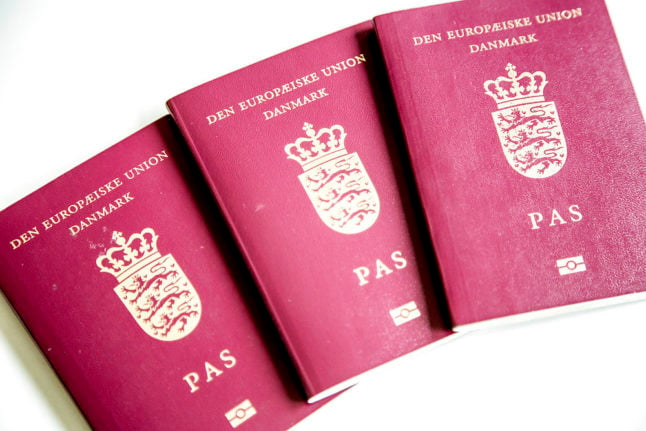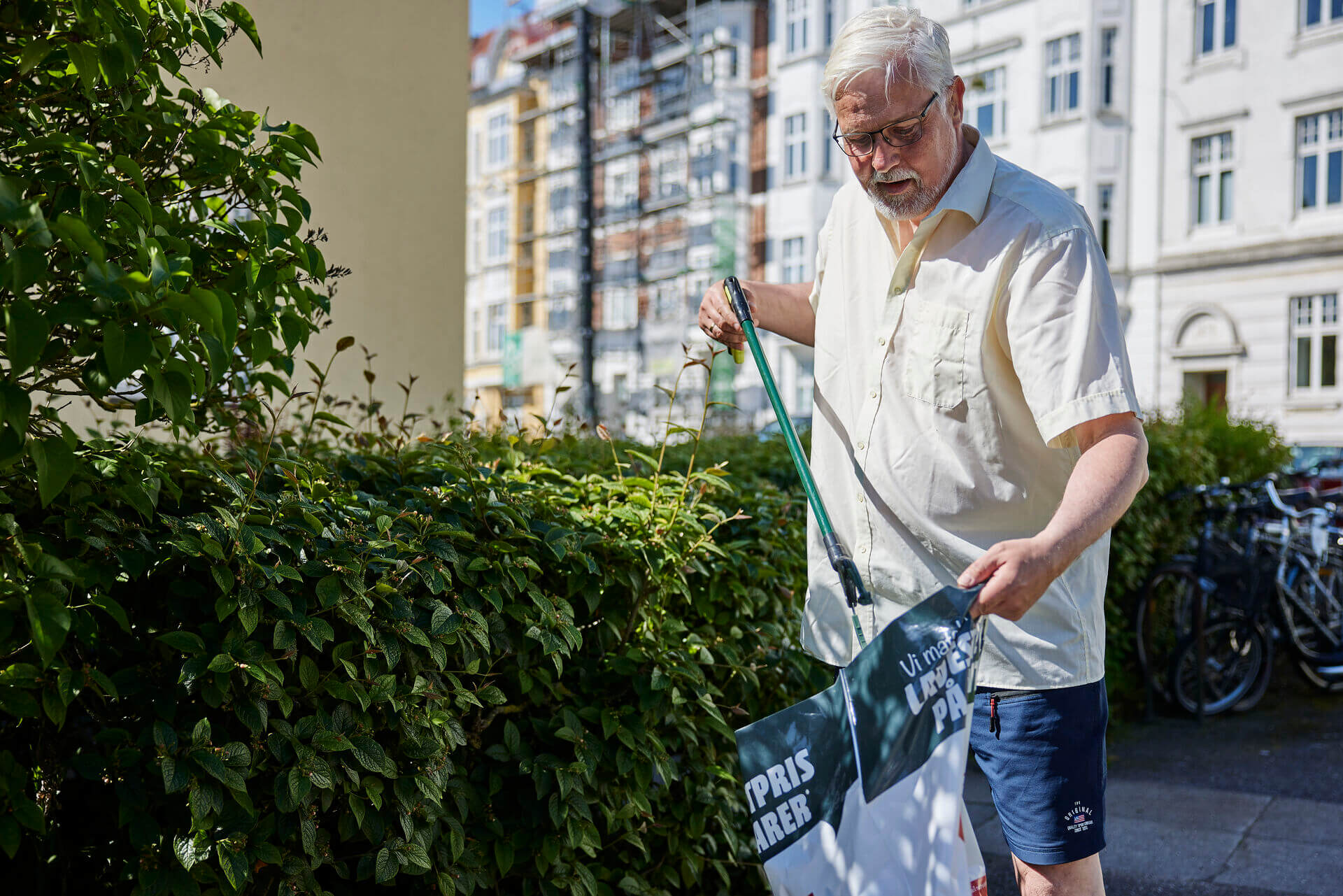From introducing tough new immigration laws to stripping Syrian refugees of residency permits, and now the new agreement regarding citizenship, Denmark’s Social Democrats have arguably escalated the hardline approach to immigration of the preceding, right wing government. Some opponents have called the Social Democrats a new right wing populist party.
Denmark has some of the tightest immigration laws in the world but with these new citizenship measures, announced this week, it might just have crossed the line into explicitly racist policy.
READ ALSO: Denmark announces new tightening of citizenship rules
The new agreement proposes tightening rules in the following areas, with some points specifically targeting groups like Muslims and non-western immigrants.
Applicants from Muslim and ‘non-Western’ countries
The new agreement separates Danish citizenship applicants into groups from Muslim countries termed MENAP (Middle East, North Africa, Pakistan plus Turkey); non-Western countries which might include South Asian, South American and other countries; and applicants from Western countries.
Because citizenship applicants’ names are tabled in parliament after over a year of scrutiny for voting, the names are currently arranged alphabetically. The new agreement proposes to separate applicants on the basis of their original nationality.
This new practice was thought up by the extreme right wing Nye Borgerlige (New Right) party but despite that party’s absence in the final agreement, its idea is actualised.
The reasoning behind this idea is ostensibly to enable separate voting on each bill and potential rejection of Muslim applicants in the list. This is contrary to the Danish constitution, which secures freedom of religion.
Residency requirement could reach 11 years (in real time)
Current rules dictate that one has to have lived nine years in Denmark before one can be eligible to apply for Danish citizenship.
Although this rule is not changed in the new agreement, one of the pre-requisites of applying for Danish citizenship is to have permanent residency.
The new agreement states that one has to have permanent residency for two years before one can be eligible to apply for citizenship. Non-EU citizens can apply for permanent residency after eight years of legal residency. The processing time of the application is ten months but can take up to a year, so in this context it takes nine years (there is a four-year fast track which is very hard to apply for as one has to fulfil many requirements).
If obtaining permanent residency permit takes almost nine years, so the citizenship residency requirement will automatically reach 11 years. This will make Denmark the only European country to set such a long-term requirement.
Employment requirement
The new agreement proposes an employment requirement for would-be Danish nationals: three and a half years’ full-time work within the last four years.
This will be one of the most illogical and problematic requirements, especially for young applicants. It will compel young students to leave their education programmes and work full time before they can be eligible citizenship.
It will also force young people born and raised in Denmark, who attended Danish schools and have been an active part of Danish society, to leave their studies after they turn 18 and start full time work. Else, they will have to wait for at least five years as they finish their education and then work full time for three and a half years.
This forces uncertainty and suffering on young people who have been part of Danish society since their birth.
New citizenship test
The current citizenship test contains a total of 40 questions covering Danish history, politics, economics, societal values and norms, culture, lifestyle and current affairs.
READ ALSO: How many Danish citizenship test questions can you answer correctly?
Another five questions on Danish values will now be added. These five questions will be about freedom of expression, equality and especially about religion. The agreement has emphasised that to pass the test one has to correctly answer four of the five extra questions.
Critics have argued that these questions are specifically designed to target Muslims and make them choose between Islam and Danish values. Should this become a reality, it will also violate the Danish constitution which guarantees freedom of speech and religion.
READ ALSO:
- Foreigners in Denmark could face interviews to test ‘Danish values’
- What do future citizens of Denmark think ‘Danish values’ are?
- Danish politicians could reject more citizenship applications under new proposal
Citizenship interview
Foreign nationals applying to become Danish citizens could also face individual interviews designed to test whether they have “Danish values”. The immigration ministry is to set out a model for the potential future introduction of such interviews, according to the new agreement.
The idea behind the citizenship interview is again to assess individual applicants on how far one has adopted Danish values – contrary to their religious beliefs.
It will at least take a year before citizenship interviews are actually introduced if the agreement becomes a bill and is passed by parliament.
Prison sentence rules out citizenship forever
The new agreement will make future citizenship impossible for people who have been sentenced to prison, either conditionally or unconditionally and for as little as one day.
Rights groups have argued that this will take the chance of a better life from a person who has once committed a crime but later reformed and can contribute to society in a better way.
It will also violate the human rights conventions. Critics have argued that with this requirement, Denmark will go back 100 years because in 1915, Denmark gave the right to vote to prisoners and now it is taking citizenship rights from former prisoners.
The new agreement does show some leniency by agreeing to allow South Schleswig residents to become Danish citizens if their children have attended Danish schools in the northern German province.
But even this concession discriminates by specifying that it applies to “Danish-minded” residents only. That means that if a South Schleswig resident with Turkish or other Muslim background wishes to apply for Danish citizenship even after fulfilling all the requirements, they would be rejected as they would be labelled as non “Danish-minded”.
The parties to the agreement – the Liberals, Conservatives and Liberal Alliance along with the governing Social Democrats – give it a clear majority to pass the presumptive bill.
But left-wing parties, which prop up the minority government, could take a firm stand on the issue if they wanted to stop it. That would probably mean threatening the Social Democrats with a no confidence vote, resulting in dismissal of the current government and ultimately an end to the agreement, at least for a while.
Are the support parties ready to take the big step and turn over the Social Democrat government over its increasingly aggressive stances on citizenship and immigration? It will only be a matter of time before we know.
 Naqeeb Khan is a research graduate of the University of Glasgow, Scotland and resides in Denmark. He is president of Green Human Resources and an executive member with the Danish Green Card Association (DGCA). He can be contacted via email.
Naqeeb Khan is a research graduate of the University of Glasgow, Scotland and resides in Denmark. He is president of Green Human Resources and an executive member with the Danish Green Card Association (DGCA). He can be contacted via email.




 Please whitelist us to continue reading.
Please whitelist us to continue reading.
I really dislike that you throw around terms like “racist“ in your title, yet fail to describe any racism in your article. Media has really destroyed the true meaning of that word by using it however they please, and it just demeans people who have really suffered first hand racism.
@Marc, I believe the article explained well the discriminatory points. But, if not I will try to give them on bullet points:
– Discriminating by religion when possibly asking a question that goes against Islam values.
– Separating groups when differentiating Westerns from MENAP (Middle East, North Africa, Pakistan plus Turkey).
– Systematic racism when setting young immigrants to be required to work at an earlier age instead of pursuing a degree/master’s degree.
Thanks for your reply Pedro, and I agree partly although I still stand with what I said. Discrimination is not racism. They are very different things and people use these words interchangeably incorrectly.
Most of the points mentioned in the article apply to me if I try to become a Danish citizen.
Hi Marc, I bet if asked you will not be bold enough to name some discrimination to be better than the other to be “good or better then…”? I fully understand WHY! I do an i hate when people do not even try to act like civilized humans and break social norms – “When in Rome…” Honestly, sometimes i see some forms of behavour and if we were not in Denmark but in Aleppo i would beat the crap out of some of those kids to teach some manners (just for the reson that Law works differently in Aleppo and you will not get to jail for that).
But response government is giving is at best “generalised” and in worst nationalistic. I do agree it has nothing to do with Racist but it clearly is other form of discrimination – nationalism…. And on Germen example we observed clearly that there is a thin line between National Pride and Nazi… And Nazi is in no way better than Racism. Measures should be taken, but not these of a kind.
Now think 15-20 years ahead, they kick out all Non-Western and all is good. But those politicians in majority never worked a day in their life and know nothing about such therefore! They still need program to get majority of your votes – what comes next?
Read this:
“First they came for the socialists, and I did not speak out—
Because I was not a socialist.
Then they came for the trade unionists, and I did not speak out—
Because I was not a trade unionist.
Then they came for the Jews, and I did not speak out—
Because I was not a Jew.
Then they came for me—and there was no one left to speak for me.”
Neimoller was German, White and Lutheran – there should be wirsdom in what he wrote.
@Marc, I believe the article explained well the discriminatory points. But, if not I will try to give them on bullet points:
– Discriminating by religion when possibly asking a question that goes against Islam values.
– Separating groups when differentiating Westerns from MENAP (Middle East, North Africa, Pakistan plus Turkey).
– Systematic racism when setting young immigrants to be required to work at an earlier age instead of pursuing a degree/master’s degree.
I’m sure we could find plenty of valid reasons for this change. Maybe Mr. Khan should take a look at that too.